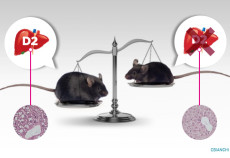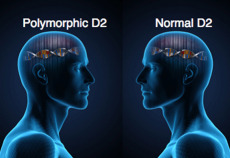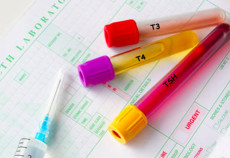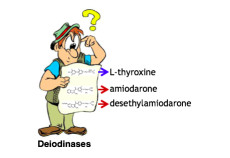
Future susceptibility to obesity is defined in the first day of life, by thyroid hormone. PMID: 26508642
Thyroid hormone has an important metabolic role. It affects multiple aspects of our body, including appetite, fat storage, blood levels of lipids and the energy expenditure. Some of these effects happen in the liver, an organ known to be regulated by thyroid hormone. Recent studies indicate that on the first day of life, the mouse […]







